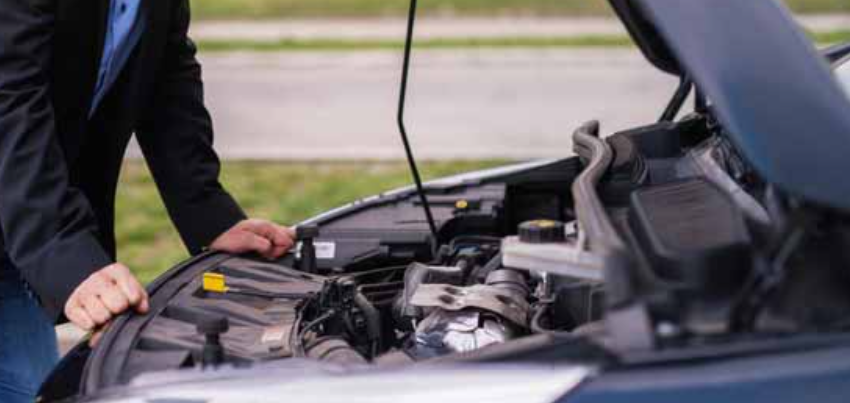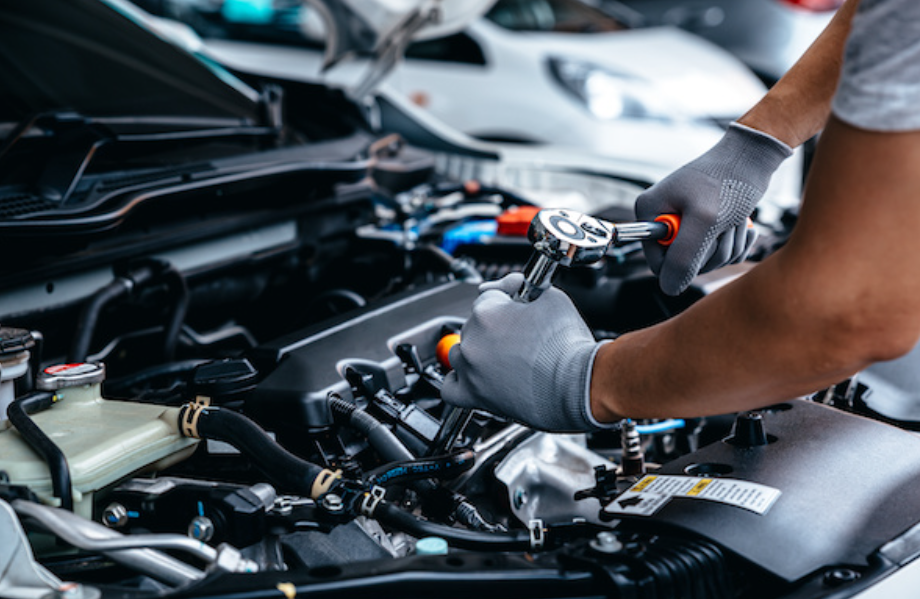Ah, the sweet silence of a calm car ride, only to be disrupted by the eerie rattling sound in engine when idle. If this sounds familiar, you’re not alone. It’s important to understand car noises as they can hint at potential problems. This article delves into one such sound – the unsettling rattling noise that your engine makes when idle. Buckle up as we rumble down this rattling journey!

Understanding Rattling Sound
The rattling sound in engine when idle can be best described as a rapid, irregular, and low-pitched knocking that’s particularly noticeable when your car is stationary. It’s as if your engine has swallowed a metal band, and they’re having a jam session.
Normal Versus Abnormal Engine Noises
Every car makes some noise. The soft humming, for instance, is the soundtrack of a healthy engine. But when the melody changes to a rattling sound when idle, it could be a sign of trouble brewing in your engine.
Importance of Identifying the Rattling Sound When Idle
Identifying the rattling sound in engine when idle is crucial. The noise could indicate anything from a minor fixable issue to a severe problem that requires immediate professional attention.
Possible Causes of Rattling Sound when Idle
The causes for the rattling sound in engine when idle are diverse. Some of them include:
Loose or Broken Parts in the Engine
Loose or broken parts in the engine compartment are a common cause of the rattling sound. This could be anything from a loose bolt or screw to a broken engine mount. This scenario is particularly prevalent in older cars where wear and tear might have loosened some components. When the engine is running but the vehicle isn’t moving, these loose parts can vibrate, producing an amplified rattling sound.
Low Oil Pressure
Low oil pressure is another common cause of a rattling sound when the engine is idle. The oil in your car serves many crucial roles, one of which is to lubricate the engine components and minimize friction. When the oil pressure is low, this lubrication is insufficient, causing the parts to rub against each other. This friction can lead to various sounds, including the notorious rattling sound when idle.
Issues with the Timing Chain
The timing chain synchronizes the rotation of the crankshaft and camshaft to ensure the engine’s valves open and close at the right time. Over time, this chain can wear out or stretch, causing it to slap against the engine, creating a rattling sound. The rattling sound due to a faulty timing chain is usually more noticeable when the engine is idle than when driving.
Engine Knocking Due to Poor Fuel Quality
The fuel quality can significantly influence your car’s performance and the noises it makes. Poor quality or low-octane fuel can cause the fuel-air mixture in your engine’s cylinders to detonate in more than one place at a time, a phenomenon known as engine knocking. This engine knocking can produce a rattling sound when the engine is idle.
Exhaust System Problems
The exhaust system in your car is quite robust but is not immune to problems. Common issues that can cause a rattling sound when idle include a loose exhaust pipe, a failing catalytic converter, or a broken exhaust mount. These issues can cause parts of the exhaust system to vibrate excessively, producing a rattling sound.
Cooling System Issues
The cooling system, including the water pump and the cooling fan, can also be a source of a rattling sound when the engine is idle. A malfunctioning water pump can produce a deep rattling sound, while a damaged cooling fan can make a higher-pitched noise.
Diagnosing the Issue
To identify the cause of the rattling sound in engine when idle, a few steps are involved:
Basic Troubleshooting Steps
Begin by performing a visual check for any loose or broken parts in the engine compartment. You can also monitor your oil pressure using the car’s gauge and pay attention to any changes in engine performance such as loss of power, difficulty starting the engine, or poorer fuel economy.
Signs That Require Immediate Professional Attention
If the rattling sound when idle is accompanied by other serious signs such as a drop in engine performance, overheating, or the “Check Engine” light coming on, you should immediately seek professional help. These symptoms could indicate a serious underlying problem that needs to be addressed as soon as possible.
Using the Process of Elimination to Identify the Cause
If the basic troubleshooting doesn’t identify the cause, you can use the process of elimination by addressing one potential issue at a time. For example, you could start by tightening all visible bolts and screws. If the rattling sound persists, move on to the next possible cause.

Solutions for Rattling Sound in Engine
Addressing the rattling sound in engine when idle can involve various fixes:
How to Fix Loose or Broken Parts
For loose parts, the solution might be as simple as tightening the bolts or screws. For broken parts, you may need to replace them. Some parts can be easily replaced at home, while others might require a trip to the mechanic.
Remedies for Low Oil Pressure
If low oil pressure is causing the rattling sound when idle, you might need to switch to a different oil type or grade. For more severe cases, replacing your oil pump may be necessary.
Timing Chain Repair or Replacement
If a faulty timing chain is the culprit, a mechanic can adjust it to eliminate the slack. In some cases, the timing chain may need to be replaced.
Changing to Higher Quality Fuel
If poor fuel quality is causing the rattling sound when idle, switching to a higher-octane fuel can help. Higher octane fuels are more resistant to detonation, which can reduce or eliminate engine knocking.
Repairing Exhaust System Issues
For issues with the exhaust system, you may need to tighten loose parts or replace broken ones. If the catalytic converter is failing, it will need to be replaced.
Addressing Cooling System Issues
Cooling system problems might require replacing the water pump or the cooling fan, depending on which part is malfunctioning. If the cooling system is leaking, the leak will need to be repaired, and the cooling system will need to be refilled with coolant.
When to Seek Professional Help
Professional diagnostic tools and experience are invaluable when addressing the rattling sound in engine when idle. Ignoring this sound can lead to severe engine damage. A mechanic can accurately diagnose the issue and suggest the best course of action.
Preventive Measures
To avoid a rattling sound when idle, regular maintenance and servicing are essential. Using quality fuel and driving habits that avoid engine wear and tear can also prevent such problems.
Conclusion
The rattling sound in engine when idle is a common issue that can signal various potential problems. Understanding this noise, diagnosing its causes, and knowing how to fix it are crucial. Don’t ignore this rattling sound – take action at the first sign of a problem. Drive safe!
FAQs
Q: Can I drive my car if it makes a rattling sound when idle?
A: It’s best to have the car checked out by a professional to avoid any potential damage.
Q: Is the rattling sound when idle a serious issue?
A: It can be. The rattling sound might indicate problems that could lead to significant engine damage if not addressed.
Q: How can I prevent my car from making a rattling sound when idle?
A: Regular maintenance, using quality fuel, and good driving habits can help prevent a rattling sound in engine when idle.